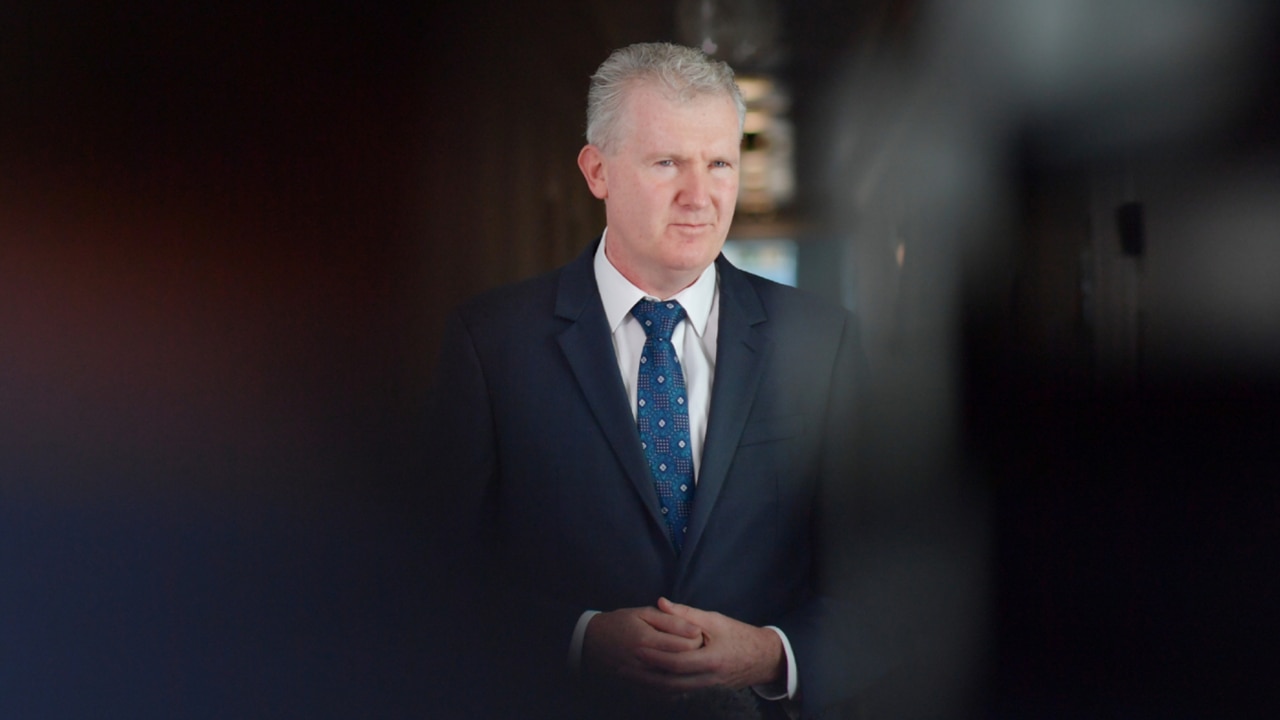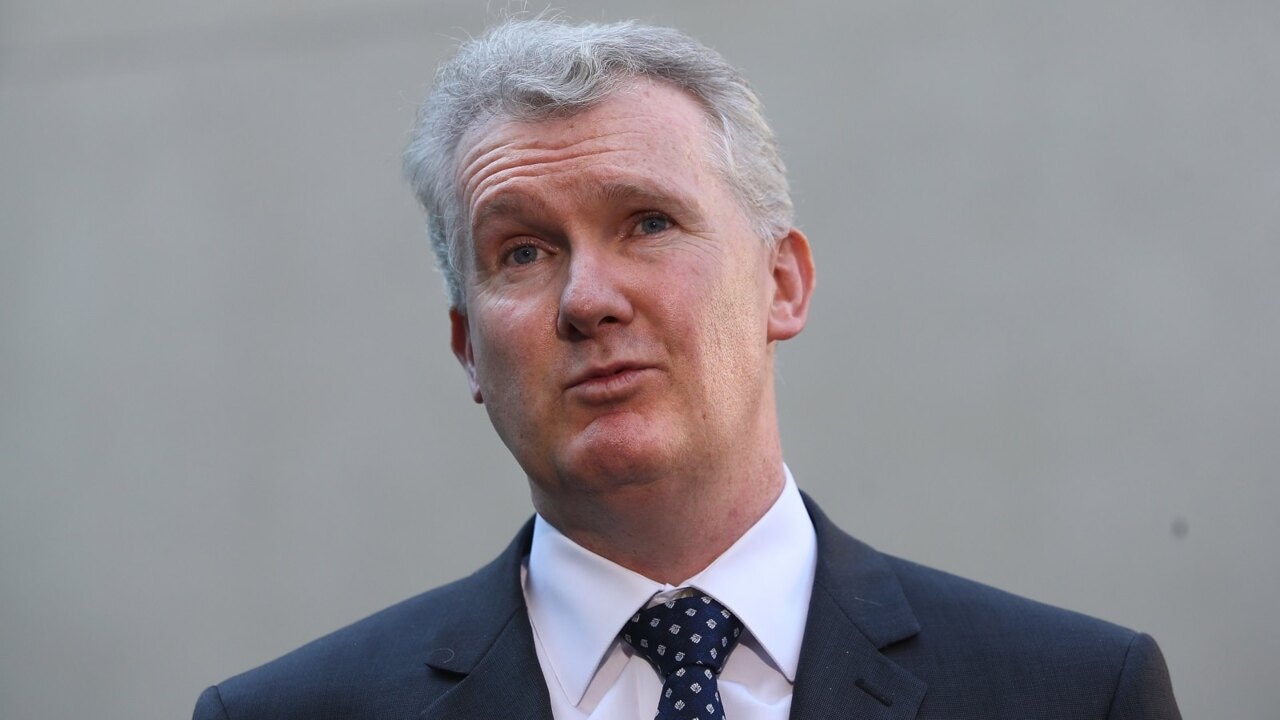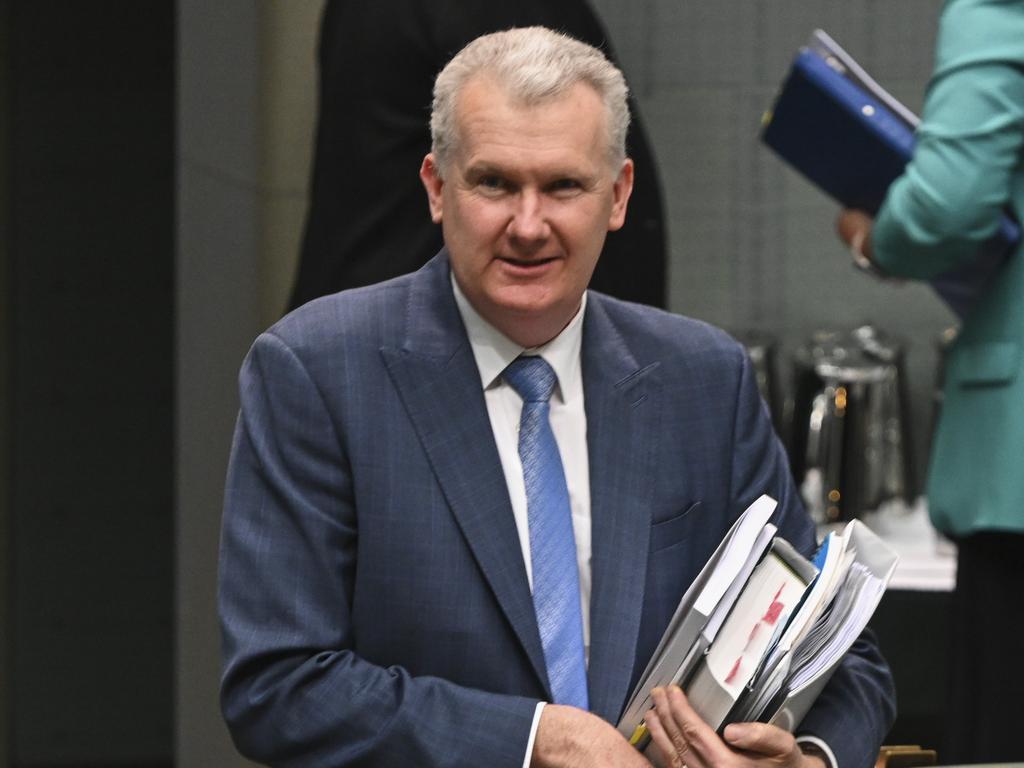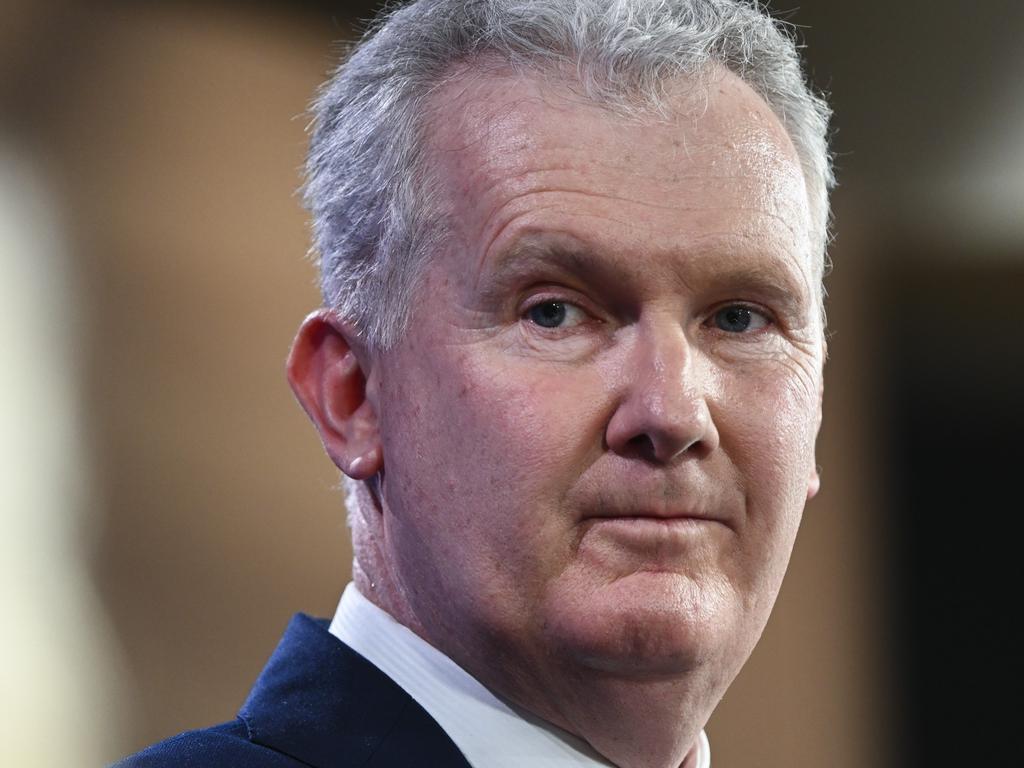$9bn IR bill to business: everyone to pay
Labor’s IR changes will cost employers up to $9bn in extra wages over the next decade, as business vows to oppose the ‘extreme’ reforms.

Labor’s IR changes will cost employers up to $9bn in extra wages over the next decade, according to new government estimates, as business vows to oppose what it claims are extreme and interventionist workplace reforms
Detailed Department of Employment and Workplace Relations costings – tabled along with the Closing Loopholes bill on Monday – said the labour-hire changes could cost employers up to $510m annually assuming just 66,446 labour-hire employees would be covered by new Fair Work Commission orders.
The department also estimated the cost of minimum pay standards for digital platform workers would be $4bn over the next decade.
It said the businesses would likely be able to pass on the extra costs “through higher prices for consumers or third-party businesses”.
The new figures will spark another front in employers’ war with Workplace Relations Minister Tony Burke over his second tranche of IR reforms, as he brought the proposals to parliament on Monday after months of consultation.
The Australian understands Mr Burke is a “long way off” securing crossbench support. While high-level ministerial meetings with key crossbenchers have been held, no extensive briefings were offered before the legislation was released.
Minerals Council of Australia chief executive Tania Constable claimed the $5bn labour-hire estimate “barely scratches the surface” of the true impact of the “same job, same pay” laws. “As the legislation now makes abundantly clear, the economic impact fails to take into account the hundreds of thousands if not millions of service contractors and workers in related entity businesses that will be captured by this legislation,” Ms Constable said.
Introducing the changes into parliament, detailed in a 284-page bill and 521-page explanatory memorandum, Mr Burke also set out proposals for the commission to set minimum standards for truck drivers. Mr Burke said the changes to labour hire, wage theft, casuals and gig-work rules in the bill had been subject to extensive consultations and were designed to close loopholes that undercut pay and conditions of workers. “Most workers will be unaffected by what happens this year, but for those who are affected, this will be life-changing,” Mr Burke said

Business leaders said they were particularly concerned about impacts on owner-driver truckies, apprentices and trainees attached to group training organisations and registered training organisations, adverse impacts on supply chains and employers being forced to litigate their way out of “same job, same pay” rules.
The multimillion-dollar cross-sector industry push against Labor’s IR changes will ramp up and is expected to exceed the resources industry’s campaign against the mining tax. Armed with the government’s legislation, industry groups will also prepare their own modelling.
Unions backed the changes that they said would lift wages and conditions, reduce the exploitation of workers and save lives in the transport sector. ACTU secretary Sally McManus said claims that there would be additional costs incurred through the new laws and passed on to consumers were misleading.
“Every single time workers ask for a pay rise … always the argument is the same: that it’s going to cause prices to go up, it’s going to wreck the economy and that’s all turned out not to be true,” Ms McManus said.
“How can we ever say as Australians that it’s not right for workers to be paid at least the minimum wage. That’s what we agree is the minimum you need; in fact the trade union movement thinks that minimum wage is too low. Laws that are about making sure people get that absolute bare minimum are modest, fair changes.”
She also reiterated that the union movement was opposed to the government granting exemptions to small business from the labour-hire changes and some other elements of the bill.
Despite the concessions, Council of Small Business Organisations Australia chair Matthew Addison said the changes were causing confusion among small businesses. He said the changes would require every business to dedicate resources, time and money towards trying to understand and implement”onerous new obligations”.
Business Council of Australia chief executive Jennifer Westacott said the changed definition of casual work put at risk the ability of businesses to hire casual employees and warned that proposed changes to labour hire arrangements were “unworkable”.
“This will only add confusion and costs, while limiting the opportunities for people to get jobs with the flexibility they need,” Ms Westacott said.

“If the government thinks few people will take up the right to convert to permanent employment, then why is it making this change?”
Australian Chamber of Commerce and Industry chief executive Andrew McKellar said the only winners from the reforms were union chiefs.
“The only loophole this bad legislation is looking to close is that of plummeting union membership,” he said.
“If you’re in labour hire or want a casual job, prepare for unemployment. If you are a service provider and want to advertise online, prepare for unemployment.”
Master Builders Australia chief executive Denita Wawn said: “The worst fears of the building community have been realised with the introduction of a radical omnibus industrial relations bill that takes the sledgehammer to tradies right across the country.”
Australian Industry Group chief executive Innes Willox said Labor’s IR changes were “deeply flawed” and must be rejected by the parliament. “The government is proposing major changes to core aspects of our workplace relations system. They are changes that will, collectively, impact most sectors of the economy,” Mr Willox said.
“It is crucial that parliament properly scrutinises the changes and isn’t misguided by efforts to downplay the adverse impacts of the changes or their significance.”
Peter Scutt, who founded and runs the carer industry business Mable said the impact of the reforms would take the independence out of independent contracting by restricting the flexibility contractors could impose within their own business models.
Independent senator David Pocock and JLN senators Jacqui Lambie and Tammy Tyrrell have not indicated their support for the IR reforms. The JLN and Senator Pocock – who backed last year’s multi-employer bargaining changes after winning some concessions – will seek adequate time to consider the omnibus bill and meet with impacted stakeholders.
Greens leader Adam Bandt on Monday reserved the left-wing party’s position on the IR legislation but declared the party’s priority was ensuring that “right to disconnect” provisions are included in the final omnibus bill.
Additional reporting: Sarah Ison, Fergus Ellis







To join the conversation, please log in. Don't have an account? Register
Join the conversation, you are commenting as Logout